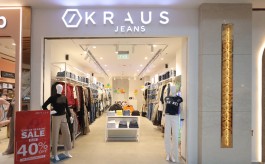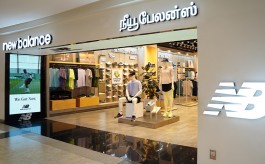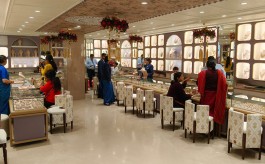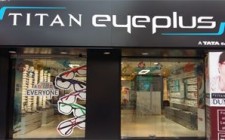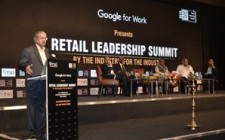Are bookstores back? Yes, no, maybe
Vjmedia Works | February 19, 2016
The need is being felt again. But this time, they are adding a few tweaks to entice the public
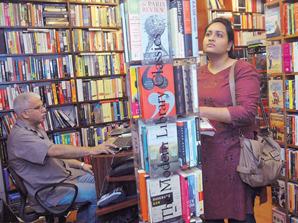 Reports surfaced in The Wall Street Journal that Amazon may be looking at opening almost 400 brick-and-mortar bookstores in the US after it opened a store in Seattle.
Reports surfaced in The Wall Street Journal that Amazon may be looking at opening almost 400 brick-and-mortar bookstores in the US after it opened a store in Seattle.The Seattle-headquartered company came out almost immediately and dismissed the numbers out of hand, but whispers remained that the e-commerce company is still looking at a physical store model. The rumours gained credence after the e-commerce giant invested in Westland, the Indian publishing house.
Amazon's discount-first model killed the likes of Barnes and Noble in the US. In India, the emergence of Flipkart, and later Amazon, meant walk-in customers deserted the likes of Landmark, a Tata bookstore, and Crossword, run by Shoppers Stop.
Flipkart, which originally started out as just a bookstore, stocked all the titles it could get its hands on. After it switched to a marketplace from an inventory-heavy model, in order to raise funds, its focus shifted to electronics and fashion. The variety of titles diminished because the discount hoopla in books had subsided. Flipkart even phased out its e-book division.
Discounting in books, where the margins are thin to begin with, did not make sense anymore. And then so did the customer's need to shop online, apart from the convenience factor which still plays a part, albeit small.
But the need for physical stores, especially when it comes to books, has been felt again. This makes one ask the question: are bookstores in line for a comeback?
The players believe they never left the scene.
"India's market is not as simple as the US. We consume books through physical, online and e-books," says Crossword CEO Kinjal Shah. He says that Crossword has 98 stores and plans to add 10 every year. He says that footfall has not dropped, though growth has stagnated. But he firmly believes that the bookstore is where readers will always return; and when they return, they will shop.
"There is no discovery possible when it comes to browsing for books through a website. On a website, you can't skim through books and titles. At a store, you look at the books, touch them and find what you like," says Shah.
His opinion is mirrored by almost all independent bookstore owners. Shah explains that as discovery drops, so do eventually the number of books bought, which means the bottom line is affected, things investors don't look kindly towards, which could be why Amazon is looking at physical stores as a model once again.
Amazon's bookstores will mean it gets to keep customers even when they are not on the website. It will help them discover new titles and then direct them online to buy others by the same author hence keeping them coming back for more.
The likes of Prithvi bookstore, attached to the well-known Mumbai theatre, and Wayword and Wise, a new independent book store in Mumbai, say it is easy for Amazon to sell "fast food literature" such as John Grisham and Chetan Bhagat and create no USP of its own, while for bookstores it is all about creating the brand.
"You need to guide customers through their selection. We need to be able to tell a reader that if he liked a certain title, he may like others and encourage him to make more purchases," says Wayword and Wise CEO Atul Sud.
A sense of belonging
Bookstores both have been trying hard to build a community either by niche literature or by events. "Often there is a need for building communities around the kind of authors that you like and that can't happen on a window," says Shah."We saw a huge turnout when Dan Brown came to our stores," he adds.
Sud says that even if Amazon, or others, did get into the book trade it would not be an easy nut to crack. Apart from the overheads, the company will have to hire serious talent to mould readership and then handle the pricing.
Paula Mariwala of Seedfund says that the overheads, at least in the cities, are too high for a thin-margin business like books. She believes that bookstores may become relevant again but with a few tweaks. "A coffee shop with a bookstore may work as it encourages social engagement," says Mariwala.
She cites Mumbai's famous Kitab Khana as a popular example where the owners put up a small restaurant along with the books to attract customers.
The format has started to take shape with cafes in Delhi, Mumbai and Bengaluru starting to use it as a hook. In Mumbai, Leaping Windows Cafe acts as a library for graphic novels along with selling basic Italian fare.
Mohit Bahl of KPMG agrees and says that reading will make a comeback but bookstores will not. In his view, the mom-and-pop store model will ultimately survive. "For chains there are two problems: one, the personalised touch across stores will not be possible; and two, these stores need huge footfalls, which just aren't there," says he. Sud of Wayword and Wise makes a similar point. He says that for a bookstore to be successful it needs critical mass. For Wayword, the critical mass is 3,000 dedicated readers coming a few times every year, spending Rs 1,000 and doing that consistently for three to five years.
The heydays of the 1990s where bookstore chains dominated every youth's favourite hangout spot may have passed, but in a new avatar, bookstores may make a comeback even if they come with the cost of a slightly overpriced coffee attached.
Advertisement

